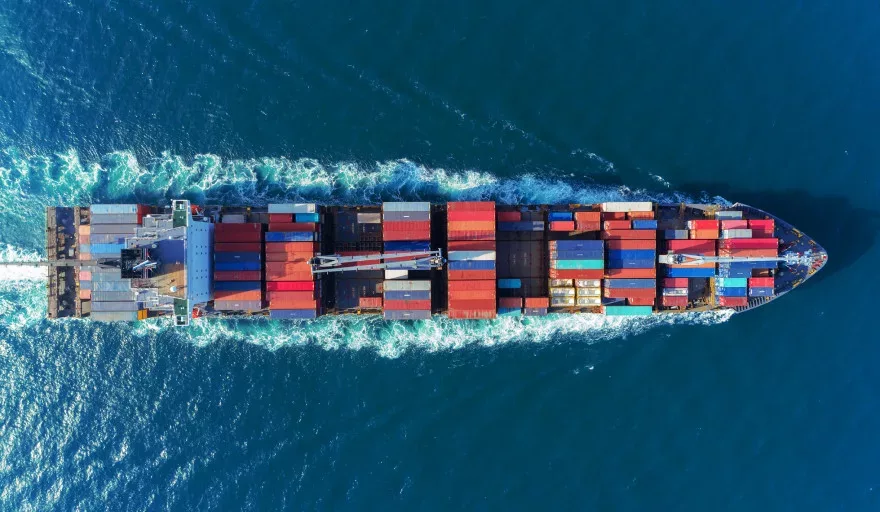Sylvia Boer, Head of Communications at Damen Shipyards Group and President, WISTA the Netherlands, talks to us about the importance of equalising gender in the shipping industry.
The numbers surrounding women in the maritime industry suggest room for improvement.
Seeking to address this issue and create a level playing field in our sector is not, as some may think, purely a women’s issue but a responsibility shared throughout the sector. And a responsibility that, taken seriously, can deliver serious benefits for the entire industry.
Consider that women make up 51 percent of the world’s population, but only 17 percent of its senior management and less than 10 percent of its executive board leaders, and you can see the issue expressed in a nutshell. To put that in a maritime perspective, of 1.2 million seafarers worldwide, just two percent (around 24,000) are women. And 94 percent of those are working in just one sector of the industry – cruise.
Such scenarios show a disregard for the multiple, in-depth scientific studies that reveal diverse advantages brought about by wider female inclusion in the workplace. Studies, for example, that show that if every country matched the gender equality progress of the fastest moving nations, world GDP would rise by some $12 billion. That’s a significant difference that, surely, we cannot afford to ignore.
When you consider it, it’s logical that is should be this way. After all, wider gender inclusion means direct access to a wider talent pool. This on its own is surely enough reason to challenge the current situation, but there’s more – much more.
Take the International Maritime Organisation (IMO), for example. The IMO has looked at the subject in great depth over many years and, based on scientific analyses, indicates that investment in women gives a progressive boost not only to communities and companies, but even to countries.
They point to research clearly showing improved economic growth and better commercial business performance going hand-in-hand with increased gender equality. For example, that companies with more women serving on the board of directors have been shown to outperform those with the least in terms of commercial activity and return on investment – let’s remember, this is not idle speculation, but serious empirical research backed by hard numbers.
Little wonder that the IMO is taking this issue so seriously – even going so far as to make ‘Empowering Women in the Maritime Community’ the focus of World Maritime Day this year. For some years now, actually, gender equality has been on the IMO’s radar.
Back in 1988 the IMO initiated a gender programme – this was a time when the vast majority of maritime training institutes did not provide access to female students. The programme has provided the means for the IMO to incorporate a gender dimension to its work, worldwide, supporting wider access to training and employment for women in the maritime sector. There is, however, more work to be done.
Part of the IMO’s work lies in helping its member states to achieve the UN 2030 Agenda for Sustainable Development at the Sustainable Development Goals. Notably, goal number five is relevant here – achieve gender equality and empower all women and girls.
The IMO, of course, is not alone in all this. In its work promoting gender equality in the industry, the organisaton is aligned with WISTA – the Women’s international Shipping and Trading Association. WISTA is committed to minimising the gender gap in the maritime, trading and logistics sectors and to building a global community. Widening the network yet further, WISTA works together not only with the IMO, but also with the European Commission, the Institute of Chartered Shipbuilders and others, providing a stage for mentoring and knowledge sharing to encourage best practice and improve the competences of members.
Reflective of the shared goals between the two organisations, the IMO has recently awarded WISTA consultative status. This will give WISTA the chance to further promote its agenda to the industry, extending gender equality and enabling a sustainable, inclusive future for the sector.
The subject of women in the industry is also one that I personally feel very strongly about and one that the company I work for is playing its role in.
Within Damen, we are also working towards the UN Sustainable Development Goals, including the fifth goal. Damen already has women in a wide variety of roles across the group. These include women in technical roles such as engineering and research and development functions, as well as management positions.
In our recruitment marketing materials, we are very conscious to show a mix of both men and women performing roles at Damen – we want women to see that ours is a company that welcomes the talent they have and will give them the opportunity to develop it.
Similarly, we arrange events for female students, giving them the opportunity to visit our company in order to get a taste of the working culture and to meet other women who are making their career at Damen. These events include special dinners for ladies and tours of our yards, where they can meet their potential future colleagues.
Such approaches are reflective of the values of our company, but also of the enormous advantages that working in this manner can bring. We’ve talked already of how gender equality grants wider access to the talent pool. The effects of this cannot be understated; a wider perspective, different ways of thinking, greater and faster problem-solving capabilities, better decision making and higher levels of innovation.
This is before we even consider that improvement in brand value and reputation brought about by sponsoring ethical, progressive behaviour. And let’s not forget the potential of employee engagement – gender equality is not just a great way to attract talent, it’s also a great way to retain it. As I said in the beginning, this is far from just a women’s issue – gender equality is a means by which both individual and organisation can reach their full potential and that is why this is in everyone’s interests.




















